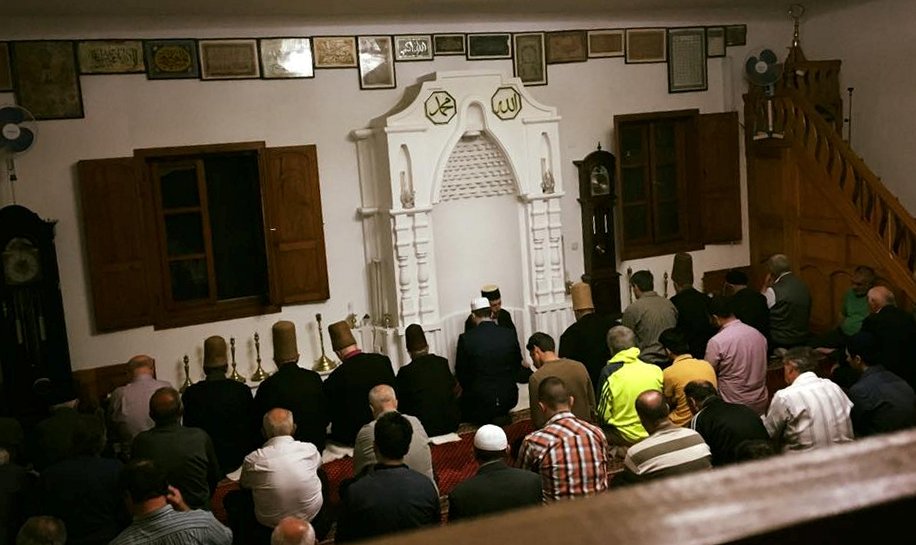SADR AL-DIN AL-QUNAWI AS SEEN FROM A MEVLEVI POINT OF VIEW – Masataka TAKESHITA
III. ULUSLARARASI MEVLÂNA KONGRESİ
SADR AL-DIN AL-QUNAWI AS SEEN FROM A MEVLEVI POINT OF VIEW
Prof. Masataka TAKESHITA*
- Introduction
Sadr al-Din al-Qunawi is the most important disciple of Ibn Arabi. It is through him that Ibn Arabi’s thought was spread over the wide Islamic world. It is no exaggeration to say that it is Sadr al-Din’s interpretation of Ibn Arabi which influenced later Sufis, philosophers, and theologians. Although he follows Ibn Arabi faithfully in many points, his style is different from his master. In the words of Chittick, Ibn Arabi roots his teachings in the Koran and the Hadith, but Qunawi employs a more abstract vocabulary that is much more reminiscent of texts on philosophy. In the words of Chodkiewicz, Qunawi gave a philosophical formation to the doctrine of his teacher. Qunawi together with his numerous distinctive students established a scholastic, speculative Sufism, which is at least in style quite different from the early Sufism. Early Sufis shunned any speculation, be it philosophical or theological. Sufism was a practice, a way of living, not a way of thought. The manner of then-expressions is ecstatic utterances called shatahat, and poems. Therefore it is no wonder that Ibn Arabi and his school was often accused by Sufis that they are not a Sufi, but a philosopher, which is a infamous word for Sufis. The Sufism Rumi represents seems to be the exact opposite of Qunawi’s type of Sufism. He seems to belong to the mainstream Sufism, which avoids speculation and puts an emphasis on practice. However, Sadr al-Din al-Qunawi and Rumi were not only contemporaries, but also lived in the same city, the city of Konya. Both Rumi and Qunawi were born at the same year (1207), but Rumi died one year earlier than Qunawi, namely 1273. Certainly these two great men must have known each other. It is interesting to know what kind of relations they had and what kind of opinions they had toward each other. Unfortunately as far as I know, Rumi never mentions Qunawi’s name in his writings, nor does Qunawi Rumi’s name. The only means to know their relations, their mutual opinions are later hagiographies. In this paper, I chose the Manaqib al-Arifin, the most famous hagiography of Mevlevi saints written by Aflaki who died eighty years after Rumi. Indeed in this book Sadr al-Din is a very important character, whose name is mentioned at least thirty-one times according to the index of Yazici’sedition. Of course, the portraits of Sadr al-Din and Rumi in this book are heavily biased in favor of Rumi, as is expected from the hagiographer of the Mevlevi order. For this reason, in order to see their relations from Qunawi’s side, it is indispensable to compare this account to the hagiography of Sadr al-Din, but the Manaqib of Sadr al-Din only exists in manuscript, and unfortunately the three existing manuscripts are not accessible to me.
- Abdal vs. Sufi
As is said above, it is generally understood that Rumi belongs to the mainstream of Sufism, while Qunawi is closer to philosophy than to Sufism. Therefore it is all the more astonishing to find out that in the Manaqib al-Arifin, it is not Rumi, but Qunawi who represents Sufism. This is most explicitly stated in the following episode (3/531): At the mourning ceremony of one of the Parvane’s deputies, many prominent people, great shaykhs, and commanders were present. When the time of the evening prayer came, all the people asked Rumi to become the imam of the prayer. However, Rumi refused to act as the imam, saying, “we are the people of Abdals; We sit and rise in whatever place we are (Biz Abdallardaniz. Nerede olsa oturup kalkariz./ ma mardom -e Abdalim, beharja’i ke bashad mineshinim wa mikhizim). Instead, Rumi recommended Qunawi, as the Imam of the prayer, saying, masters of Sufism and authority are worthy of the office of Imam. (Imamliga, tasawufehli ve sabitkadem insanlar yarsir. /emamatira arbab-e tasawof wa tamakkon layeq and). This is not the only place Sadr al-Din is considered the representative of Sufism. In one episode (3/37) at a gathering of Parvane’s house, prominent men have a discussion about a problem where the seat of honor is. Qadi Siraj al-Din answers that in a madrasa of ulamas, the seat of honor is the middle of the dais, while Sadr al-Din answers that in the manner of the Sufis the seat of the honor in the khaneqah is the side of the dais, (dar madhhab-e Sufiyan sadr dar khawaniq kenar~e Suffatra guyand). Also in one episode (3/292) the companions of Moa’yyad al-Din Jandi who is one of the famous disciples of Sadr al-Din Qunawi are called Sufis. On the other hand, the word Abdal reminds us immediately of Abdalan-e Rum, mentioned by Asikpasazade as one of the four groups in the 14th century Anatolia. Although it is doubtful that Rumi really called himself Abdal, still it is important to know that Aflaki thought Sadr al-Din to be a Sufi and Rumi to be one of the Abdals which are distinct from Sufis. We have to know what are the differences between Sufis and Abdals by finding out the life-style of Sadr al-Din depicted in the Manaqib.
- The Life of Sadr al-Din in theManaqib al-Arifin.In the Manaqib, the name of Sadr al-Din usually comes with the title of Shaykh. Sometimes he is called Shaykh aHslam Sadr al-Milla wa al-Din. At a tomb visiting ceremony, his title is announced by the master of ceremony as follows (3/580): the King of Mohaqqeqin, the Shaykh of Islam throughout creation. Sadr al-Din protests him, saying that Rumi was the true Shaykh of Islam, and after his death, there is no Shaykh of Islam any more.. Other honorary titles used for him are as follows, shaykh al-mashaaykh naadiratul zamaan, malik al-muhaddithnn&ll.Sti), and muhaddith-e ayyam. In one episode (3/443), Hosam al-Din in his conversation with Rumi refers to him as Shaykh Sadr al-Din-e Mohaddeth.
Sadr al-Din lives in a lodge (zawiya) surrounded by many companions, such as Shams al-Din-e Iki, Fakhr al-Din-e Iraqi, Sharaf al-Din-e Mawsili, Sa’id-e Farghani, Nasir al-Din-e Qunawi, Mo’ayyad al-Din-e Jandi. As his title, mohaddeth indicates, he regularly gives lessons on hadith (.3/321). The Parvane read Jami”al-Usulon Hadith under him. Besides giving lessons on hadith, every Friday after the noon prayer, he has a public session in his lodge. (3/240) all the ulemas, fuqaras, and commanders (umara) gather together in his lodge. Sadr al-Din mentions some problem or subtle point (nokte), and they have a heated discusssion about it, while Sadr al-Din keeps silence. In the end, he speaks (sokhani mifarmud), and the discussion comes to an end. He has a very good relation with the court. The Parvane often visits him, and also invites him to his house. In official ceremonies for various occasions, he is always invited as a guest of honor. In these ceremonies he usually appears with Qadi Siraj al-Din, who seems to be his old friend. Probably, Qadi Siraj al-din represents the class of ulama, and Shaykh Sadr al-Din the class of Sufis. Sadr al-Din receives the stipends from the Parvane and religious endowment (awqaf). The stipends are used for his household and for his disciples and for taking care of travelers. His house is large, and he has many servants. In one episode (3/17), a merchant from Tabriz comes to Konya, and asks notables (khaja) of the city to bring him to one of the famous shaykhs and ulamas of the city. They bring him to Sadr al-Din. When he comes to Sadr al-Din’s house, he is disgusted at so many servants (khadam, pi. of khadim), attendants (hasham), beautiful boys (shahid), slaves (ghulam), chamberlains (hujjab), doormen (bawwab), and eunachs (tawashi), and cries out, “Did I come to visit a commander (amir) or to see a Faqir.” The notables of Konya answer as follows. This does not harm his spirit, because he has a perfect soulN just as halva (sweets) does not harm a doctor, but only harm a sick person of feverish disposition, and it is not suitable for him to eat halva. In another episode (3/395), when Rumi is offered a stipend for his disciples from the Parvane, he refuses the offer, saying that Sadr al-Din has many expenses, and he lives a kingly life (ma’ishat-e padeshahane mikonad), our companions do not need anything. That money is more appropriate for the costs of his kitchen. In another episode (3/396), his companions complain to Rumi, saying that Sadr al-Din has many stipends and endowments (awqaf), while Rumi receives only half a dinar. Rumi answers as follows. Sadr al-Din has more expenses and he is in charge of protecting travelers. We do not have any expenses. That half dinar must be also given to him.
- How Sadr al-Din and Rumi regarded each other. There were frequent contacts between Rumi and Sadr al-Din, but it seems that it is Rumi who visits Sadr al-Din’s lodge, not the other way. In the Manaqib, Sadr al-Din visits Rumi only in his deathbed. Of course, they met each other often in public gatherings.
As is expected from a Mevlevi hagiography, Sadr al-Din has a very high esteem on Rumi. In one episode (3/221) it is said that at first Sadr al-Din greatly opposed Rumi. But by miraculous dream he recognized the greatness of Rumi. It is interesting to note that the same dream was seen by Qadi Siraj al-Din, and they repented together. This is not the only miraculous dream Sadr al-Din had, in which the greatness of Rumi was manifested. Altogether there are seven episodes (3/221; 3/257; 3/283; 3/321 3/362; 3/375; 3/596 in which Sadr al-Din’s dream or mystical vision is described. Sadr al-Din openly tells his dream and acknowledges Rumi’s greatness to his disciples and the court people. In two episodes (3/124; 31 369) in Sadr al-Din’s presence, someone rebukes Rumi openly and Sadr al-Din tries to stop him. In the latter episode, he says that it is reprehensible to test great men concerning the mystic path. (3/367) In two episodes (3/561; 7/34), he defends the companions of Rumi after Rumi’s death from the attacks of the ulamas. It seems that the attack of the ulamas against the practice of Sema increased after Rumi’s death, because they thought that what was allowed to Rumi was not allowed to the disciples. In the other episode, Sultan Walad permits the recitation of ghazals at the funeral ceremony and someone opposed it as an innovation. The masters of Sufism who had been present there reported this dispute to Sadr al-Din. He took side with Sultan Walad. In both cases, Sadr al-Din argues in favor of Rumi’s companions, saying that good innovation of the saints is like the sunna of the prophets. Sadr al-Din also tries to offer financial help for Rumi through the Parvane (3/395), He says to the Parvane, Rumi is not concerned at the stipends at all, but the stipends must be given to poor, deserving dervishes of Rumi. However, as is stated above, Rumi refused the offer of the Parvane.
Rumi also seems to have a high regard on Sadr al-Din over other religious authorities who frequent the court. In his deathbed, Rumi refuses to take a cup of medicine from the hand of Hosam al-Din, and from Qadi Siraj al-Din, but he takes a cup from the hand of Sadr al-Din. (3/579); In one episode (3/578), Hosam al-Din askes Rumi who is to perform the funeral prayer for him. “Sadr al-Din is the worthiest” is his answer. However, Hosam al-Din comments on this, as follows. All the great ulamas and qadis wanted to perform a prayer for him. In othere words, performing the funeral prayer is the work of the ulamas and qadis. Probably for Rumi, Sadr al-Din is the worthiest among ulamas and qadis. There are two episodes, which clearly shows that Rumi did not consider Sadr al-Din as his equal. In the first episode (3/443), Hosam al-Din asks Rumi as follows-‘ You sincerely favor Sadr al-Din, but in this path is he a mohaqqeq, or moqallecP. His reply is as follows. He is a moqalled, by God he is a moqalled as compared to your realization of truth (nisbat be-tahqiq-e shoma). And he adds, man has two great signs; one is the knowing (shenakhti, the other is the risking one’s life (bakhf). Some have the knowing, but do not have the risking, some have the risking but not the knowing. Happy is the soul of those who possess both.
It is interesting to note that Mohaqqeq and related terms such as ahl al-Haqq, which means the one who attained Truth or who reached God are often used by Ibn Arabi and Sadr al-Din to designate themselves. As is shown above, one of the honorary titles of Sadr al-Din is the King of Mohaqqeqin. However, here, the term mohaqqeq is contrasted with the term moqalled. Moqalled is usually used in contrast with mojtahid. Moqalledmeans the one who blmdly follows the authority, being unable to excise his own independent judgment. But, here, moqalled corresponds to the knowing (shenakhfi, and mohaqqeq to risking one’s own life (bakht). It seems to me that moqalled here implies adherence to the established convention of the society, and mohaqqeq implies audacious free mind who does not afraid to deviate social conventions and risk one’s own life for it. 5. Rumi between Sufism and Abdalism
Considering contemporary scholars’ unanimous opinion that Sadr al-Din used philosophical terminology in order to formulate Ibn Arabi’s thought, it is surprising that there is no mention of his philosophical tendency in the Manaqib. Indeed, there is no indication of his being a stepson and an influential disciple of Ibn Arabi. Instead, he is often called mohaddeth (hadith scholar). It is also stated (3/17) that he is without equal in all the religious sciences and the Path (tariqa) of the shaykhs of certainty (mashaykh-e yaqini). In other words, he was highly esteemed both as a scholar of exoteric sciences and a Sufi shaykh of esoteric Way. As such he is firmly incorporated into the religious establishment of the Rum Seljuk state. Sufis in his time are respectable people. They are an indispensable part of religious institution of the state together with ulamas and qadis. In the Manaqib, Sadr al-Din often appears with Qadi Siraj al-Din who represents the ulama-qadi class.
Against this institutionalization and intellectualization of Sufism, there appeared a counter movement which opposes to this tendency. Those who represent this counter movement are called Qalandars and Abdals. Rumi who maintained close personal relations to the Parvane and the court in general and widely respected by the people are certainly not one of the Qalandars or Abdals in this sense. But in the spirit he is closer to Abdals than to institutionalized, intellectual, conventional Sufism Sadr al-Din represents. Rumi’s behavior breaks the conventional customs of the religious people and upsets the established orders among religious scholars. In many episodes, Rumi appears in the official gatherings of ulamas, shaykhs and courtiers. All the invited people take their seats appropriate for them according to their rank. Usually Qadi Siraj al-Din and Sadr al-Din take the seats of the highest honor. Rumi is also offered the seat of the highest honor, but he always refuses to accept this seat. Instead, he sits at the humblest place. The guests who had already taken their seats had to abandon them to move down near Rumi’s place. Rumi’s behavior in these official gatherings is also not conventional. In the gathering of the Manam mosque, to everyone’s astonishment, he suddenly starts spinning in front of a mill stone.in the garden.(3/298) In one of the Friday prayers, he suddenly falls in trance in the standing position of the prayer (qiyam), and remains in this position until the next Friday prayer.(3/240) And in many occasions Rumi starts sema with his disciples in the middle of the public gatherings.
While around Sadr al-Dii gather many scholary Sufis and he seems to take good care of their education by regulary giving them lectures, Rumi seems to abandon educating his disciples totally since his meeting with Shams-e Tabrizi. Instead of teaching, he immerses himself into contemplation, utters esoteric words, and most often he performs the sema. The sema of Rumi’s time is not the orderly, elegant sema of the later period. It often begins spontaneously and akin to the ecstatic dance of the shamans. Participants cry out and tear their shirts, and fall into unconsciousness. In one episode (3/64) someone criticizes Rumi, saying, “Around him gather common people and craftsmen. Wherever there is a tailor, cloth-merchant, or grocer, Rumi takes him and accepts him as a disciple. No knowledgeable and virtuous people come around him.” In another episode (3/101), someone rebukes him, saying I do not know what way of life (sirat) and what Path (tariqat) this man has, and to whom his mantle (khirqa) goes back.
As a conclusion, it can be said that Sadr al-Din belongs to Sufism, which at this time became established, respectable institution, while Rumi with his free-minded spirit tries to keep a certain distance from this religious establishment of the state, although not cut off completely from it. Sadr al-Din acts as an intermediary between Rumi and the established religious classes. He recognizes Rumi’s greatness, and publicly proclaims his saintliness. Rumi takes a middle position between respectable, intellectual, institutionalized Sufism and antinomian, anti-intellectual, radical Abdalism. This middle position was too difficult to maintain, and after him, the Mevleviya became separated into the conformists known as “the arm of Walad”, after Sultan Walad, and antinomian deviants known as “the arm of Shams”, after Shams-e Tabrizi. (Karamustafa, p. 82)
* University of Tokyo










